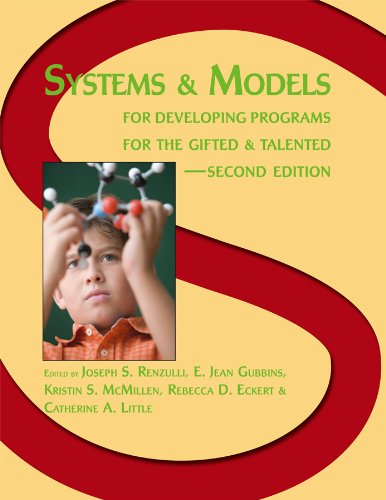Synopsis
Now completely revised and expanded, Systems and Models includes chapters on the major systems and models for developing programs for the gifted, including the Autonomous Learner Model, the Integrative Education Model, the Multiple Menu Model, the Purdue Three-stage Model, the Schoolwide Enrichment Model, and Levels of Service. Forty-two experts (Baum, Benbow, Clark, Kolloff, Meeker, Reis, Rimm, Sternberg, Tomlinson, et al.) in gifted education contributed to 25 chapters. Each chapter includes a comprehensive, yet concise discussion of the model, theoretical underpinnings, research on effectiveness, and considerations for implementations. Discussion questions follow each chapter. This resource is a must-have for educational-psychology courses and for school boards considering different models.
About the Author
Joseph S. Renzulli is professor of educational psychology at the University of Connecticut, where he also serves as director of the National Research Center on the Gifted and Talented. His research has focused on the identification and development of creativity and giftedness in young people and on organizational models and curricular strategies for total school improvement. A focus of his work has been on applying the strategies of gifted education to the improvement of learning for all students. He is a fellow in the American Psychological Association and was a consultant to theWhite House Task Force on Education of the Gifted and Talented. He was recently designated a Board of Trustees Distinguished Professor at the University of Connecticut. Although he has obtained more than $20 million in research grants, he lists as his proudest professional accomplishments the UConn Mentor Connection program for gifted young students and the summer Confratute program at UConn, which began in 1978 and has served thousands of teachers and administrators from around the world.
"About this title" may belong to another edition of this title.
